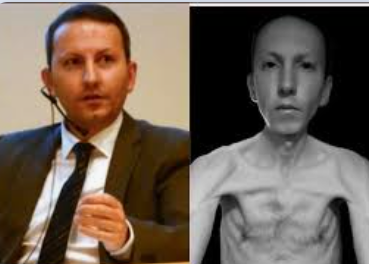Sweden has demanded that Iran release academic Ahmadreza Djalali, who is on death row in Iran, after his wife said May 9 that he had had a heart attack in prison and his life is “at immediate risk.”
Jalali, 53, an Iranian who was arrested on a visit to Iran in 2016 and sentenced to death in 2017 on espionage charges, was granted Swedish nationality while in jail. He suffered a heart attack in Tehran’s Evin prison, Vida Mehrannia wrote in a post on X.
“He has been transferred to the hospital section in Evin prison. He was informed that he will not be able to see a cardiologist [for two days] until Sunday,” the wife wrote.
“After nine years of suffering, his health is declining rapidly. His life is at immediate risk, and he must urgently receive proper care,” she wrote.
She urged Swedish Prime Minister Ulf Kristersson and Foreign Minister Maria Malmer Stenergard “to do everything in their power to secure his immediate release.”
Stenergard said on X that she had “spoken urgently tonight with the Iranian foreign minister. During the conversation, I demanded that Ahmadreza Djalali immediately receive the specialized care he needs.”
“My work, and that of the government, for Ahmadreza Djalali continues with unabated strength. Ahmadreza Djalali must now be immediately released on humanitarian grounds so that he can be reunited with his family, something I also expressed in today’s conversation,” she said.
Sweden has previously said that Iran does not recognize Djalali as a Swedish national since he was only an Iranian citizen when he was arrested and was granted Swedish citizenship after his conviction.
In June 2024, Tehran freed two Swedes held in Iran in exchange for Hamid Nouri, a former Iranian prisons official serving a life sentence in Sweden. Djalali was left out of the swap.
“It seems not to be a priority for the Swedish officials what may happen to me as a Swedish citizen while I risk dying either by execution or due to poor health,” Djalali said in January, in a voice message through his wife.
“It seems that due to my dual nationality, I am considered as a second-class citizen,” he said.
Western countries have long accused Iran of detaining foreign nationals on trumped-up charges to use them as bargaining chips to extract concessions.
























